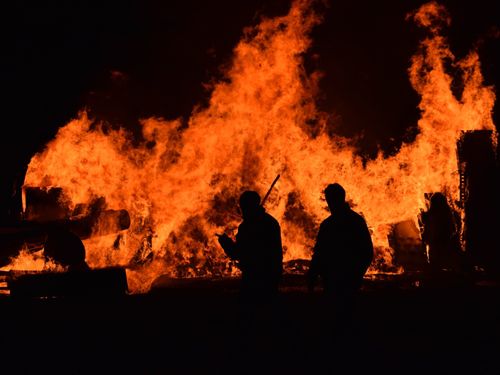What’s Causing All The Wildfires Isn’t What You Think
Aug 12, 2023 · 2 mins read
0
Share

Recently, we’ve been hearing more frequently that the world is on fire, with climate change causing massive wildfires in the US, Greece, and throughout the Mediterranean. But does climate change really have anything to do with it?
Save
Share
As it turns out, not really. In fact, data shows that in Europe it has been a relatively average year as far as coverage of forest fires goes. Globally, land covered by wildfires has been decreasing by around 25% from 2001 to 2015.
Save
Share
Changes in land use has contributed to changing patterns of wildfires. In Eastern Europe for example, farmland has been abandoned and been returned to scrubland, which is often more arid and subsequently contains more flammable material.
Save
Share
Forest management also contributes a lot to these changing patterns. Wildfires are often started by lightning strikes, which play a key role in some ecosystems, with some plants taking advantage of the fires in order to germinate.
Save
Share
In the US, however, firefighters seem to have become too good at combating wildfires. In the past, parts of forests were regularly thinned out by wildfires; now, dead wood (i.e. very flammable material) can pile up on the woodland floor.
Save
Share
This means that whenever wildfires do occur and aren’t capable of being controlled, you end up with a larger, more destructive wildfire than if you had a regular series of smaller, more manageable fires.
Save
Share
But what, then, accounts for the warmer overall temperatures we’ve seen this year? One such contributing factor is the volcanic eruption on Tonga in 2022, which boosted water content in the stratosphere by a massive 10% by throwing super-heated water up to 50km into the air.
Save
Share
Water vapour is the most powerful greenhouse gas, as it can trap heat across a wide part of the infrared spectrum. It accounts for around 4% of all atmospheric gases, compared to around 0.04% for the more commonly cited carbon dioxide.
Save
Share
Indeed, a group of European scientists concluded that the Tonga incident is one of the most remarkable climactic events in the modern observation era, with a range of long-lasting repercussions for stratospheric composition and climate.
Save
Share
We as a people are quick to jump to the most alarmist answer to why certain things are happening, when really we should be looking for more well-informed and holistic approaches to knowledge gathering. In short, look farther than the evening news.
Save
Share
0